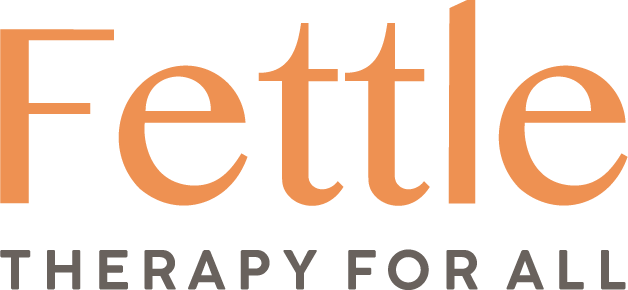
Talk Therapy Ireland
Mental health professionals employ talk therapy, often known as psychotherapy, to communicate with their patients. Talk therapy is used to assist people in identifying issues that create emotional pain.
These concerns can be complex for some people, leading to diagnoses like depression or anxiety.
On the other hand, talk therapy is used to talk about feelings and emotions generated by daily stressors, a medical disease, interpersonal troubles, grief, loss, or the impact of a specific experience.
Once the problems have been recognised, a therapist will work with you to understand how these stressors affect your life and develop methods and solutions to help you manage the symptoms.
A talk therapy session usually lasts approximately an hour, although it can be as short as 50 minutes. The frequency with which you attend therapy and the length of time you stay depends on the severity of your symptoms and the treatment plan devised by your therapist.
You should anticipate going to treatment once a week at first. While weekly appointments may seem like a big commitment, they allow you to build a relationship with your therapist and get used to the process.
As you learn coping techniques and show evidence of recovery, this may reduce the frequency of meetings to bi-monthly.
Types of Talk Therapy
Couples Counselling
Cognitive Behavioural Therapy (CBT)
Group Therapy
Dialectical behaviour therapy (DBT)
Interpersonal therapy
Acceptance & Commitment Therapy (ACT)
Choosing the proper therapist is only one aspect of the process. It would help if you also educated yourself on the various talk therapy approaches. What's the good news? There are numerous possibilities, so you'll most certainly discover one that suits your needs.
Online Counselling - E-therapy, e-counselling, teletherapy, or cyber-counselling are all terms for offering online therapy in Ireland and support over the internet. Email, text messaging, video conferencing, online chat, messaging, and internet phone can all be used to provide services.
Online therapy can occur in real-time, such as via phone calls and text messages, or a delayed manner, such as via email communications. Despite its limits, this sort of treatment is gradually becoming a vital resource for a rising number of people.
Cognitive behavioural therapy (CBT) - Cognitive behavioural therapy (CBT) is a psychotherapy treatment that teaches people how to recognise and change harmful or troubling thought patterns that affect their behaviour and emotions.
Cognitive-behavioural therapy focuses on modifying automatic negative thinking that can exacerbate emotional problems, sadness, and anxiety. These uncontrollable, unpleasant thoughts have a terrible impact on mood.
CBT identifies these thoughts, challenges them, and replaces them with more objective, realistic ones.
Couples counselling - Couples therapy is a type of psychotherapy that can improve your relationship with your partner. Couples therapy might help you rebuild your relationship if you're suffering relationship problems. Online couples counselling can help with various concerns, such as frequent disagreements, feelings of separation, an affair, sex troubles, and challenges caused by external stressors.
Group therapy - A form of psychotherapy in which one or more therapists work with a group of people simultaneously is known as group therapy. This sort of therapy can be found in several places, including private therapeutic practices, hospitals, mental health clinics, and community centers. Group therapy is sometimes used independently, but it is most often part of a larger treatment plan that includes individual therapy.
Interpersonal therapy - Interpersonal therapy (IPT) is a type of psychotherapy used to treat depression and other illnesses. It usually lasts 12 to 16 sessions. IPT focuses on your interpersonal connections and social interactions, including how much assistance you receive from others and how these relationships affect your mental health, as its name suggests.
CPT Therapy - Cognitive processing therapy (CPT) is a cognitive behavioural therapy aimed at assisting those who are "stuck" in their trauma-related thinking.
Mindfulness-based therapy - Mindfulness-based therapies encourage you to pay attention to your thoughts and feelings as they arise in the present moment.
MBCT is used to prevent depression from returning and alleviate anxiety and stress in some people.
MBCT combines mindfulness practices such as meditation and breathing exercises with cognitive therapy, which teaches you how to control your thoughts and how they affect your emotions.
Dialectical behaviour therapy - Dialectical behaviour therapy (DBT) is a sort of cognitive-behavioural therapy that has been adjusted (CBT). Its primary objectives are to teach people how to live in the now, build healthy stress coping mechanisms, regulate their emotions, and improve their interpersonal connections.
What Can Talk Therapies Help?
Talking therapy can help with a variety of issues, including:
Eating disorder
Despair
Fear
Addiction
They're frequently used if you've been diagnosed with a significant mental health problem like schizophrenia or bipolar disorder.
Benefits of Talk Therapy in Ireland
Talk therapy has the advantage of having long-lasting results. This is because you're not just working through issues but also honing the skills that will help you deal with future problems. While physical symptoms can be triggered by psychological trauma or even general lethargy, depression and anxiety are widely recognised to have significant and sometimes debilitating physical impacts. If therapy is successful, it may be able to help these problems fade away.
Some of the other advantages of talk therapy include:
Improved connections
New perspectives on your life increased self-assurance
Capacity to make better decisions with enhanced communication skills
Access to effective coping mechanisms
How does Talk Therapy Work?
When a person begins talk therapy, the therapist or other healthcare practitioner leading the sessions will typically ask numerous questions at the first appointment. This allows the therapist to obtain a thorough insight into the person's history and background to determine the optimal treatment course. The following are common questions at this stage:
Mental health problems in the family
Previous traumas
What the patient hopes to achieve through talk therapy and how they are coping with their challenges in daily life
A therapist will begin treatment once they receive this information.
Talk therapy should be a free-flowing conversation regarding any challenges or concerns a person is dealing with. A psychotherapist may take notes as a person discusses their family life, relationships, childhood experiences, and symptoms or the history of a condition, to name a few topics.
A person can attend as many talk therapy sessions as they want better to understand their health, habits, or issues. A therapist may recommend regular appointments until they and the individual have developed a treatment plan or the person has made lifestyle changes.
What can a Talk Therapist Treat?
Therapy sessions can assist anyone, from those who need greater clarity and direction in their lives to those battling mental health issues.
However, there are a few conditions in which psychotherapy may be very beneficial:
Depression, whether clinical or situational
Social anxiety condition or generalised anxiety problem
Bipolar illness
Eating problems
Addiction or substance abuse
Phobias
PTSD stands for post-traumatic stress disorder.
OCD stands for obsessive-compulsive disorder (OCD)
Disorder of adjustment
This is not an exhaustive or complete list of illnesses for which talk therapy may be beneficial. Talk therapy sessions can help with anything that interferes with a person's everyday existence.
Effectiveness of Talk Therapy
There has long been a disagreement about the effectiveness of talk therapy vs. drug therapy in the mental health field. According to the medical paradigm, mental problems are caused by physiological factors and should be treated with medicine and other biological interventions.
Talk therapy proponents believe that mental problems are caused mainly by reactions to one's surroundings. As a result, they can be treated through dialogue, conflict resolution, behavioural modifications, and cognitive changes.
The majority of mental health professionals today believe that a mix of biological, psychological, and social factors contribute to the development of mental illnesses.
Where to find a Talk Therapist in Ireland
Speaking with a skilled therapist is the best way to discover whether talk therapy is right for you. They'll assess your symptoms, treatment history, and therapy goals to see if it is a good fit for you. When looking for a talk therapist in Ireland, Fettle.ie is a wonderful place to start. We have many qualified professionals in talk therapy treatment and other fields. Hit the button below and check out our list of dedicated therapists.
Things to Consider
Consider the following six questions:
What is your educational and professional background? Degrees, qualifications, and professional affiliations should all be included.
What has been your personal experience? Inquire about years of experience, settings, clientage, and conditions treated.
What are your thoughts about psychotherapy? What effect does this have on treatment?
What are your expectations of me?
How frequently do you make appointments?
What is the cost of treatment?
How to Get Started
If you or a loved one feels that talk therapy might help, go to a doctor or a mental health practitioner who has been trained in the method. You can vet and choose your therapists from the comfort of your own home using Fettle, which has many healthcare experts who are certified and trained in Talk Therapy. Click the icon below to get a list of psychotherapy-certified therapists.
How should I make the most of my therapy experience?
Here are a few suggestions to help you get the most out of your therapy:
Don't act as though everything is fine. It's OK to bring up embarrassing or frightening topics.
Attend your sessions regularly and participate actively.
Prepare for each session by focusing on a specific topic or concern.
Collaborate with your counsellor and be open to trying new things both within and outside of sessions.
Tell the counsellor how you're feeling about the sessions, especially if you don't think you're getting any help.
Make inquiries. Ask questions if your therapist is talking about something you don't understand or if you're unsure about a proposal.
Other Types of Therapy in Ireland
Therapy for Depression - Depression and other mood disorders can be treated with various treatments. Psychotherapy can be a valuable kind of therapy for depression because it can help you explore the underlying causes of your depressive symptoms and learn new coping skills.
Trauma Therapy - Trauma therapy is a type of counselling that identifies and emphasises how a traumatic event affects a person's mental, behavioural, emotional, physical, and spiritual well-being.
Bereavement Therapy - Bereavement therapy, often known as grief counselling, is psychotherapy provided to people who have lost a loved one and are going through the mourning process.
Frequently Asked Questions
Is what I say in counselling kept confidential?
Because of Fettle's code of ethics, each session is entirely private. Unless a customer requests it, no information is shared with coworkers, doctors, or family members. Individuals or situations are never discussed, and we ensure complete anonymity.
How do I know psychotherapy is for me?
If you're seeking psychotherapy or counselling, you're having problems or are unhappy in your life. Therapy can provide you with support, understanding, and the tools you need to make positive changes in your life. We always start with an assessment appointment so that both of us can figure out if we can help you and what approach/structure would be ideal for you.
What happens in a therapy session?
Hopefully, you'll feel secure and understood enough to start looking into what's been bothering you. You could feel better if you talk about the behaviours or thoughts that bother you or make you feel ashamed. Psychotherapy is often known as "the talking cure," While therapists employ various techniques, the client's relationship with their therapist is at its core. The beginning of a healing process is to be understood and "held" by a dedicated expert.
Meet Fettle’s Trusted Online Counsellors!
Our qualified therapists are ready to help you manage your mental health challenges.
Click through to read a therapist’s bio or to book a session.
Visit the Fettle blog for more helpful information.
Learn more about trending topics in psychotherapy.






























